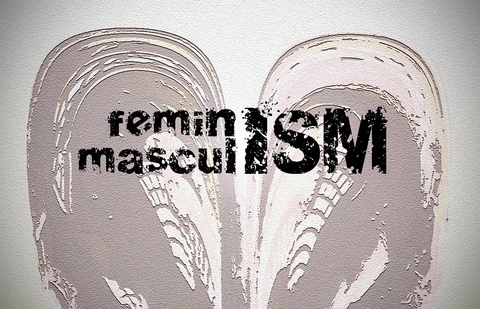Here’s An Example of Cultural Divide on Masculinity vs. Femininity and Better Understanding
Meet Ian, a British “Superman”
Ian, in his late 40s, is a senior manager at his firm, and working in its Asia office in Bangkok. He’s basically a good guy, but some would call him a “workaholic.” He’s up every day at the crack of dawn to run his 5 kilometers before work. After his shower, he reads the business section of the paper over breakfast, jumps in the car for the 60-minute drive into the office, where he spends anywhere between 10 and 12 hours in meetings, phone calls, site visits, and negotiations. He spends frequent evenings at “working dinners,” entertaining clients and colleagues from out of town. He often goes in on weekends to catch up on the inevitable paperwork and budget reports his superiors in the UK demand every week. All told, he spends an average of 80 hours a week doing his job, for which he is extremely well-paid. He’s politically conservative, highly competitive, and has little patience for those who are not as ambitious as he is. He views every meeting of a new acquaintance as a chance to show off his superior intellect and “world-class” debating skills.
His fellow Britons consider him a bit of a “superman,” as he represents the best that men in his country could hope to achieve. He’s pulled himself up by his own bootstraps, lives life on his own terms, and has a hard time respecting anyone who can’t rise on his own merits or hold his own in an argument.
Meet Pia, a Thai “Superwoman”
Pia, in her mid-30s, is a senior manager at her firm, working at the Asia headquarters of an international firm in Bangkok. She’s a good woman, liked and admired by her friends, her family, and her colleagues at work. She’s up every day at the crack of dawn to help her sister (with whom she lives) cook breakfast for the family and get her nieces and nephews off to school. During breakfast, she helps them with their homework and listens to them chatter about their school activities. After breakfast, she showers and jumps in the car for the 60-minute drive into the office, where she puts in her steady 8-to-5 hours in meetings, phone calls, site visits, and negotiations. Once in a while, if there are visiting VIPs, she’ll be invited to attend a “working dinner,” but for the most part, she’s home by 7 p.m., ready to spend an enjoyable evening with her sister, her sister’s husband and his parents, and her nieces and nephews. She rarely goes in to work on the weekends, preferring to spend the time in the company of her family or her many friends. All told, she spends an average of 40 hours a week doing her job, for which she is adequately paid. She’s politically ambivalent, extremely cooperative, and patient with people who have abilities different from hers. She views every meeting of a new acquaintance as an opportunity to add to her interesting circle of friends and contacts, and listens carefully to understand their points of view.
Her fellow Thais consider her a bit of a “superwoman,” as she represents the best that women in her country can hope to achieve. Her family helped her get a good education, and arranged the introductions necessary to secure her a good job in a good company. She’s eager to return the favor by helping her nieces and nephews, and happy to express her gratitude to those who have helped her succeed.
In previous articles, I’ve shown you that cultural attitudes in the West are often almost opposite those in Thailand. The West has a focus on the individual, and Thailand focuses on the group, for example. In the West, the society works to eliminate the stress of uncertainty by focusing on rules and regulations, and in Thailand that stress is relieved through the rituals of religion. In a similar way, your Western culture is more achievement-oriented, or “masculine, ”while her Thai culture is more nurturing, or “feminine.”
I’m not talking here about the obvious differences between individual men and women, or the ways in which boy children or girl children are “trained” in their gender roles. I’m talking about what the culture values, and how people are trained to behave within it.
If a culture values achievement, assertiveness, and “fighting to win,” it is said to be “more masculine.” And if a culture values harmony, nurturance, and “compromising to win,” it is said to be more “feminine.”The masculinity-femininity dimension isn’t just about how families teach their children the appropriate way to behave according to their gender.In other words, it is the culture that is masculine or feminine, not just the men and women within it. Both men and women hold “tougher” values in masculine countries and more ”tender” values in feminine ones.
Your Western culture, whether it’s Australian, American, British, or Canadian, tends to value and reward behavior that can be said to be more masculine. Everyone — man, woman, or child — is trained to value achievement, accomplishment, assertiveness, and competence. It’s why many Western men complain that the women of their home culture are “too aggressive.”
Her Thai culture tends to value harmony and balance above all else, and reinforces behavior that can be said to be more feminine. Everyone — man, woman, or child — is trained to value peace, community, and nurturance over individual accomplishment. As a matter of fact, even being singled out for reward or praise is actually embarrassing, as it elevates her “out” of the group to which she belongs!
Whether a culture is masculine or feminine determines what jobs are held by men, what jobs are held by women, and how much the culture values that work. For example, in more masculine cultures, there is more of a distinction between what jobs are “for men”and what jobs are “for women,” with the jobs traditionally held by women perceived as less valuable somehow. In American football, for example, a star player can earn millions of dollars a year – but the head cheerleader who supports the team earns only a fraction of what he makes. After all, her value is to support the success of the stronger, male player.
In more feminine cultures like Thailand, everyone is taught to be more modest and unassuming. Assertive behavior or the “pursuit of excellence,” which are so appreciated in masculine cultures, are qualities that are looked down on or made fun of in feminine ones. If you’ve accomplished something or achieved excellence, in a feminine culture you just keep it to yourself.
And the distinction about what jobs are “for men” and what jobs are “for women” is much smaller – everyone has a role to play in the world of work. Whether it was a male or a female periodontists who built your tooth implant, or your mother or your father who does the grocery shopping and cooking – it doesn’t matter in the grand scheme of things.
We are a matchmaking company that has built an internationally respected reputation for providing the highest quality dating services for Western guys seeking a long-term, committed relationship with a Thai woman.
We also host Dating Events where you can meet single, lovely and trustworthy Thai ladies who are also looking for genuine relationship.
To learn more and get started, visit us at MeetMeNowBangkok.com and ThaiLadyDateFinder.com.









